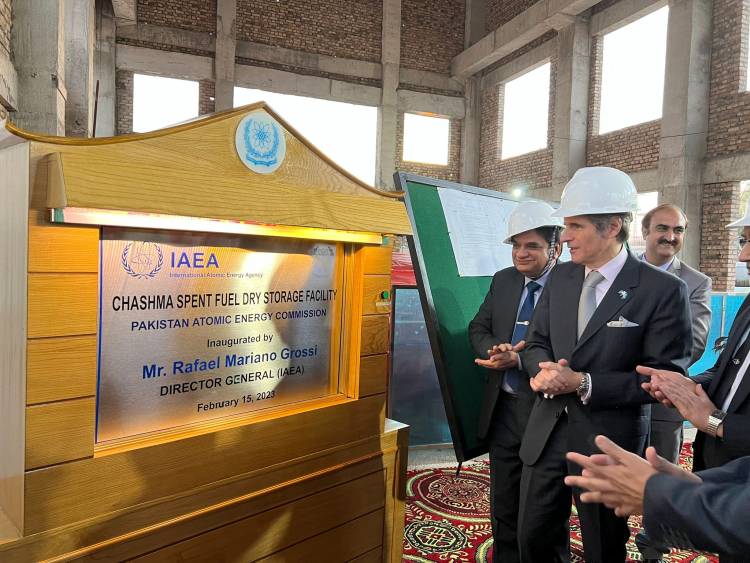The Islamic Republic of Pakistan and the IAEA will increase collaboration in peaceful applications of nuclear science and technology, particularly in agriculture and medicine, to the benefit of the country and its neighbours. That was the outcome of Director General Rafael Mariano Grossi’s two-day trip to Pakistan this week, during which he met with the country’s leadership — including its Prime and Foreign Ministers — and visited numerous nuclear facilities across the country, some of which he inaugurated.
Mr Grossi began his visit by meeting with Prime Minister Muhammad Shehbaz Sharif. The two spoke about the worsening effects of climate change on Pakistan and how nuclear science and IAEA support is helping the country.
For decades Pakistan has been ranked as one of the 10 most vulnerable countries to climate change, and last summer, was inundated with climate-change linked flooding which caused mass displacement of people and economic damages to the tune of USD 40 billion. The IAEA and Food and Agriculture Organization of the United Nations (FAO), in coordination and consultation with Pakistani authorities developed an emergency support package to assist the country in applying nuclear science to better understand the flood’s impact on soils, crops and the potential spread of animal and zoonotic diseases.
The Prime Minister expressed his desire to strengthen collaboration with the IAEA in agriculture and medicine and his support to the Agency’s efforts to promote peace and development worldwide. The two also discussed nuclear safety and security Ukraine, where Mr Grossi is championing efforts to establish a protection zone around Ukraine’s Zaporizhzhya Nuclear Power Plant, a facility beset with nuclear safety and security challenges caused by the war in the country.
In a meeting with Foreign Minister Bilawal Bhutto Zardari, Mr Grossi said opportunities for the peaceful use of nuclear science and technology in Pakistan were plentiful, emphasizing how nuclear applications and IAEA initiatives are addressing climate change and issues of access to cancer care. Mr Bhutto Zardari said that Pakistan and the IAEA will further enhance cooperation and grow the role of nuclear applications in dealing with climate change, water, energy and food security.
In Islamabad, Mr Grossi met with the Minister of Planning and Development, Ahsan Iqbal, to discuss the role of nuclear applications in addressing Pakistan’s vulnerability to climate change. The Director General also met with Pakistani fellows of the IAEA Marie Sklodowska-Curie Fellowship Programme, an initiative seeking to help build gender-balanced capacities in the nuclear sector.






